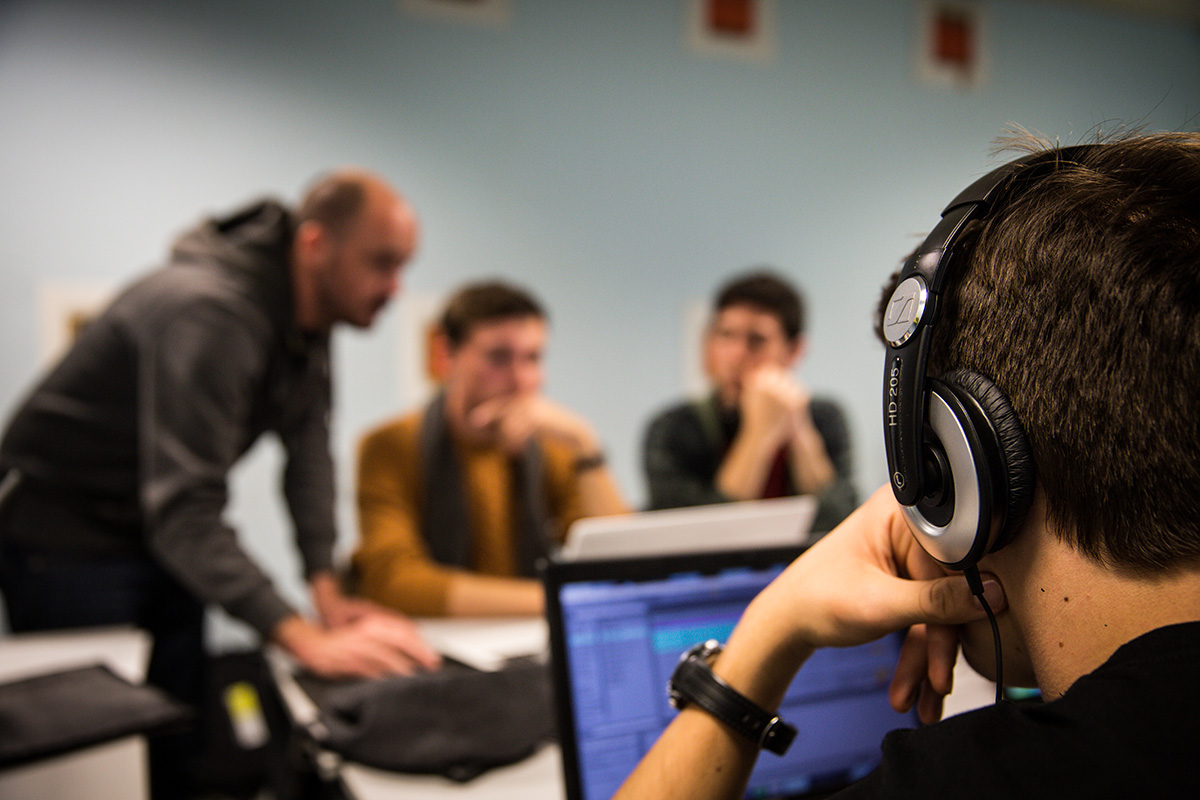Digital teaching for student success
Enriching face-to-face courses, hybridizing teaching, new assessment methods... Since 2016, the UM has been developing a policy of support for digital pedagogy visible through the organization of training courses for teachers and the deployment of new tools. All with a single objective: to promote the success of its 50,000 students.

On March 22, over a hundred people - 157 to be precise - attended the PédagoN'UM day organized by the UM. " For the first time, participants from other universities joined us to discuss and move forward on these themes," enthuses Yohann Pottier, Head of the Digital Applications Department (SUN/DSIN). The focus of this 2022 edition will be on the evaluation of knowledge and skills, with a presentation of the new tools developed to this end, in particular the Karuta e-portfolios currently in the pilot phase at UM. " This tool makes it possible to assess not only knowledge but also skills, with a real dimension given to what we call students' savoir-agir, and by integrating a self-assessment approach," emphasizes David Cassagne, vice-president in charge of digital training.
FlexiEval for better assessment
This is an extension of the work begun in 2019 by the UM as part of the FlexiEval project, which aims to build a digital ecosystem for the assessment of knowledge and skills, and whose results, at the end of the three-year period, have been very positive. Among the successes: the partnership set up between the University of Montpellier and Wooclap, an application designed to respond to two problems well known to educationalists: the difficulty of capturing students' attention and measuring their knowledge. In concrete terms, the application functions as an interactive platform enabling teachers to design questionnaires or interactive exercises that students can access during class, using their smartphones. It's a fast, straightforward way of automating the assessment of students' knowledge, while making them active participants in the course.
This type of practice is part of what we call enriched face-to-face teaching," explains David Cassagne. Here, digital technology becomes a tool for improving interaction between teachers and students, energizing the content of some and stimulating the attention of others. More recently, it was with its Pair'sEval project that the UM once again won a national call for projects. Developed in partnership with the Montpellier-based start-up Challenge Me, this project aims to develop collaborative learning and evaluative judgment through a platform dedicated to peer-to-peer evaluation.
Enriched face-to-face teaching is intended to be a plus for both students and teachers, some of whom are already involved in the " flipped classroom " approach, which favors a more interactive, hands-on approach to classroom learning. The Moodle platform for making courses and/or additional content available is a prime example of this. " The idea is not at all to switch teaching to 100% distance learning, as some may have feared, but on the contrary to take advantage of face-to-face teaching to give priority to interaction with students," adds Yohann Pottier.
AgilHybrid, added freedom
AgilHybrid's aim is not to go all distance learning, but to take advantage of the benefits offered by a hybrid face-to-face/distance formula. This other flagship project for digital teaching at the UM has been supported since 2020 by the MESRI as part of France Relance, as well as by Muse and the Occitanie Region, for total funding of 2.3 million euros. Today, 71 classrooms are equipped for co-modal teaching, enabling students to choose between face-to-face and distance learning," explains David Cassagne. In addition, 125 teaching units are currently being hybridized with asynchronous distance learning."
The so-called " asynchronous " training system includes online teaching modules that the learner can follow offline. Audio files, videos, MCQs, interactive content... are all teaching resources that students can consult freely and at their own pace. " One of the advantages of asynchronous training is that it also enables a greater diversity of audiences, whether salaried students, students on dual courses, continuing education or foreign students, since the content can be more easily internationalized. Here again, digital teaching is a formidable tool for student success," continues the vice-president.
29 training courses on offer
This message is being heard more and more by the teaching community, which is no longer hesitating to embark on this new adventure, thanks to the many training courses offered by SUN/DSIN and the support provided by the educational engineers (video Rouage: Supporting teachers in their pedagogical and digital transformation). Whether it's course scripting, game-based learning, interaction with students or new evaluation methods, " 29 training courses were offered this year to teachers at the UM, the Montpellier National Chemistry School (ENSCM), the Institut Agroand the CIHEAM IAMM 19 of which are open to the whole of France as part of AgilHybrid," declares Yohann Pottier. Over the past two years, this scheme has gone from strength to strength. By 2022, more than 300 students at the UM will have benefited from these training courses.